To use the hands in making quicklime into mortar is better than to cross them on the breast in attendance on a prince
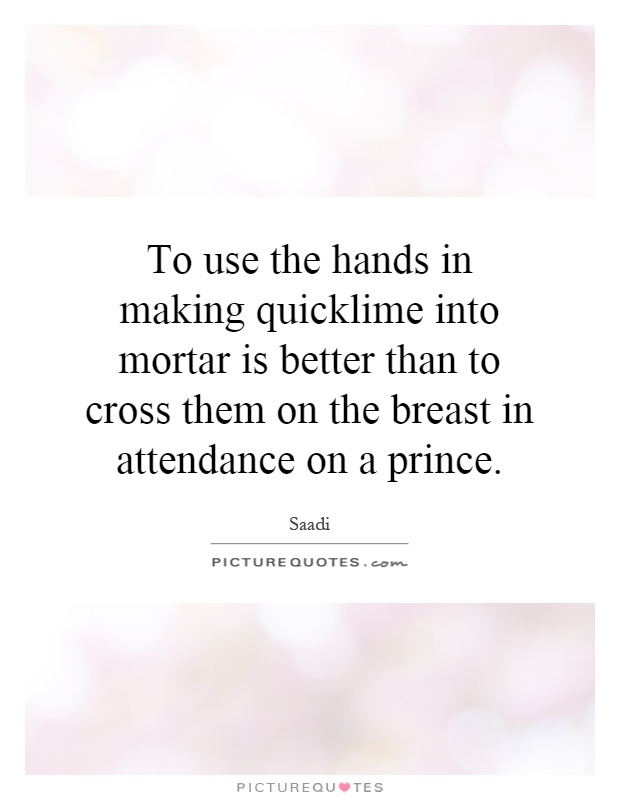
To use the hands in making quicklime into mortar is better than to cross them on the breast in attendance on a prince
In the context of Saadi, a renowned Persian poet and philosopher, the quote "To use the hands in making quicklime into mortar is better than to cross them on the breast in attendance on a prince" holds significant meaning. Saadi's works often emphasize the importance of hard work, humility, and self-reliance, and this quote is a reflection of those values.Saadi believed in the power of labor and the dignity of work. He understood that true fulfillment and satisfaction come from actively engaging in productive activities, rather than passively waiting on others. In this quote, Saadi is suggesting that it is more honorable and rewarding to work with one's hands, even in a physically demanding task like making mortar, than to be idle and dependent on someone else, such as a prince.
The act of using one's hands to create something tangible, like mortar, represents the value of hard work and self-sufficiency. It requires skill, effort, and dedication, all of which are qualities that Saadi admired. By contrast, crossing one's hands on the breast in attendance on a prince symbolizes servitude and dependence. Saadi believed that individuals should strive to be self-reliant and take pride in their own abilities, rather than relying on others for their livelihood.
Furthermore, Saadi's quote can also be interpreted as a critique of the social hierarchy and the notion of privilege. In many societies, attending to a prince or a person of high status is considered prestigious, but Saadi challenges this idea by suggesting that true honor comes from hard work and self-reliance, rather than from serving those in power.
Overall, Saadi's quote serves as a reminder of the importance of labor, humility, and self-reliance. It encourages individuals to take pride in their work and to value the act of creation over passive servitude. By embracing these values, one can find true fulfillment and dignity in their actions, just as Saadi himself did in his own life and writings.


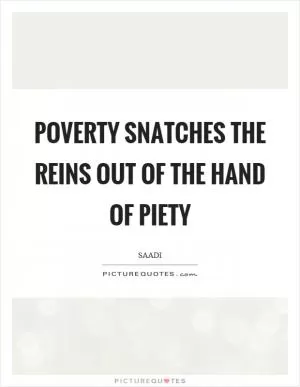
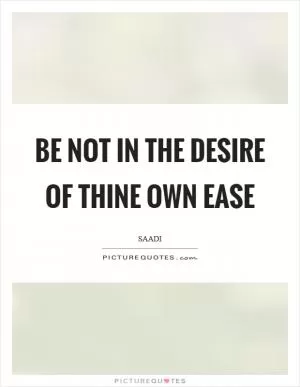

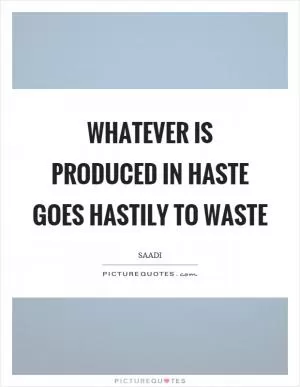

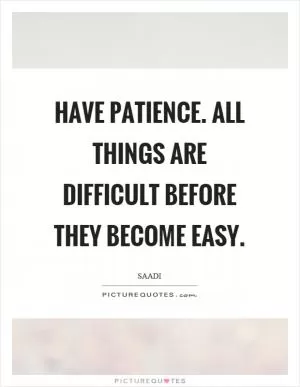


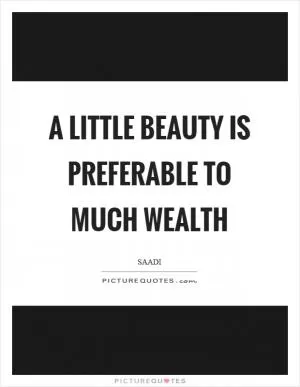

 Friendship Quotes
Friendship Quotes Love Quotes
Love Quotes Life Quotes
Life Quotes Funny Quotes
Funny Quotes Motivational Quotes
Motivational Quotes Inspirational Quotes
Inspirational Quotes